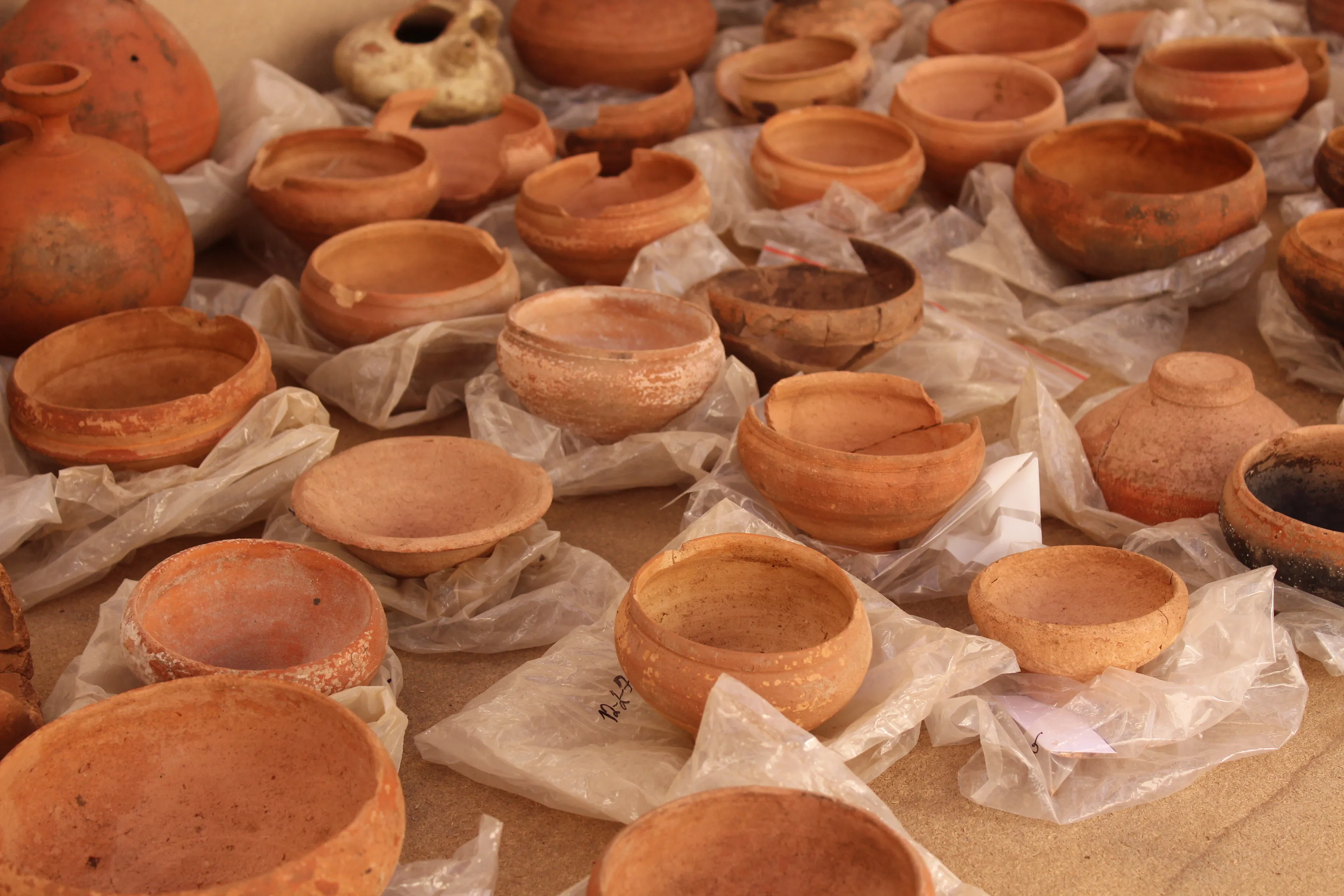
Wares, Types and Fabrics. The Upper Egypt Contribution to the Levantine Ceramics Project
- Hosting organisations
- ÖAI - Österreichisches Archäologisches Institut, Universität für Weiterbildung Krems, and Department für Kunst- und Kulturwissenschaften
- Responsible persons
- Sabine Ladstätter, Nicole High-Steskal, and Helmut Schwaiger
- Start
- End
The problem of large quantities of data
In archaeology it is common for excavations to generate large quantities of finds that then have to be scientifically studied. This is particularly the case for excavations taking place in the Mediterranean, such as Syene and Elephantine in Upper Egypt, where a total of 321,221 pottery fragments were discovered as part of an FWF-project (P23866-G18) . Of this large number of fragments around 16,000 were categorized as diagnostic, i.e. they can be interpreted in greater detail. The time period covers almost all of antiquity from the 6th century BCE to the 9th century CE. Syene is also thought to be one of the most important production centers of ceramic vessels which were traded in the entire Mediterranean. The project stood out through its detailed petrographic sampling of the surroundings for improved identification of petrofabrics and the analysis of pottery in combination with the archaeological contexts.
Accessibility, verifiability, and reusability
Such large quantities of finds cannot be published in their entirety in a traditional manner and an interpretive selection also entails an involuntary loss of information and prevents further use of the raw data. Additionally, printed publications are only accessible to a small group of readers because the publications are only available in select libraries. Particularly for the scientific community in the regions of North Africa and the Levant the only option of including them in the scientific discourse is to make information freely available online. A way out of this dilemma is made possible through the integration of research data on the » Levantine Ceramics Project «-website. This is an international initiative, established at Boston University, and has the function of documenting pottery of the eastern Mediterranean. In order to ensure the long-term accessibility of the data, the entire dataset was upload in the language of its production to ARCHE, the repository of the OeAW.